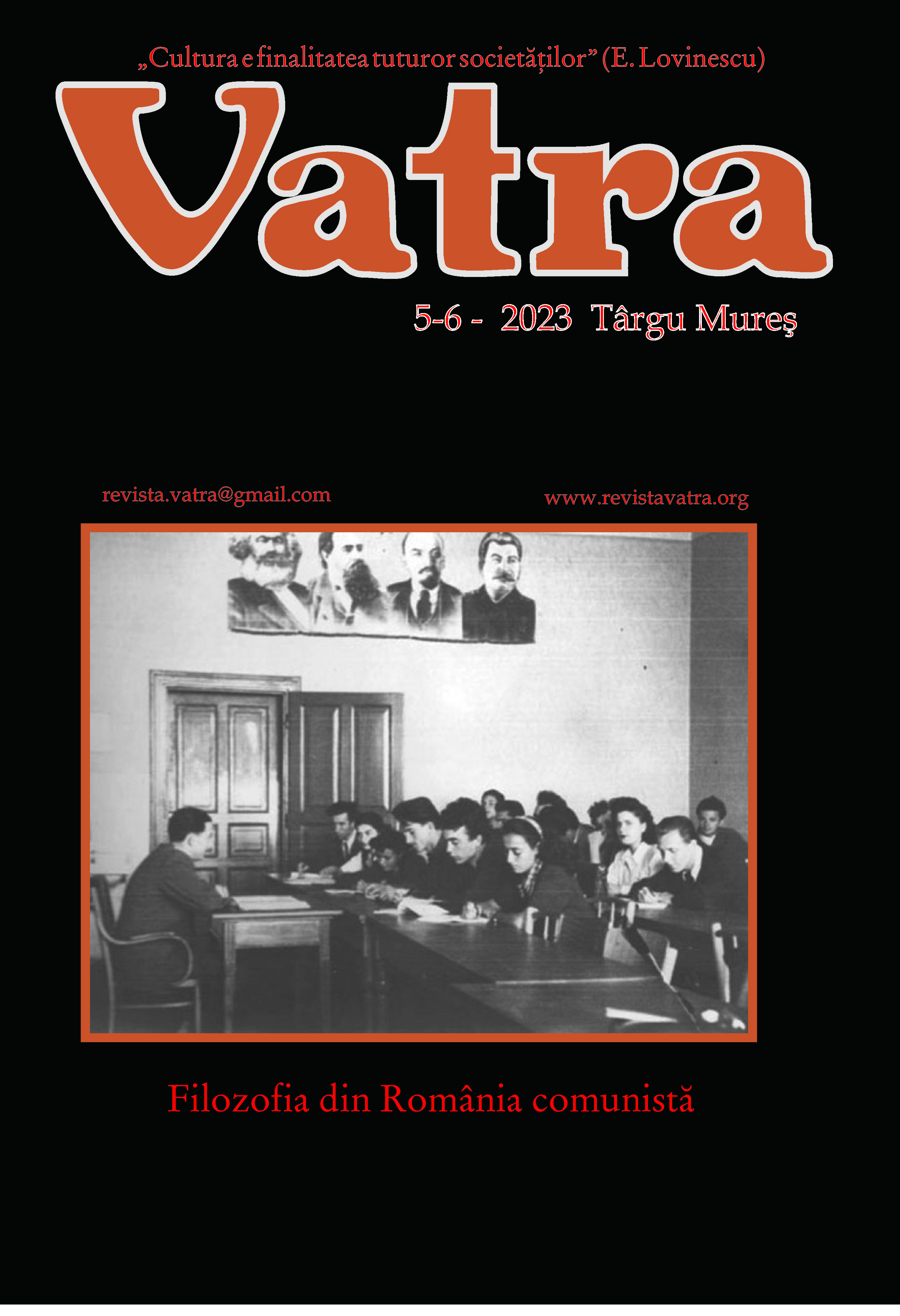
We kindly inform you that, as long as the subject affiliation of our 300.000+ articles is in progress, you might get unsufficient or no results on your third level or second level search. In this case, please broaden your search criteria.

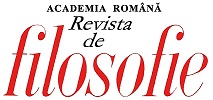
Modern science is a spiritual creation with many roots, among them the religious belief that this world can be seen as one of the forms of divine revelation. Although only at the end of the Middle Ages did such a view become dominant, the Bible also demanded that man see nature and himself as being more than he can know and understand at present. We can consider science also the result of the last demand.
More...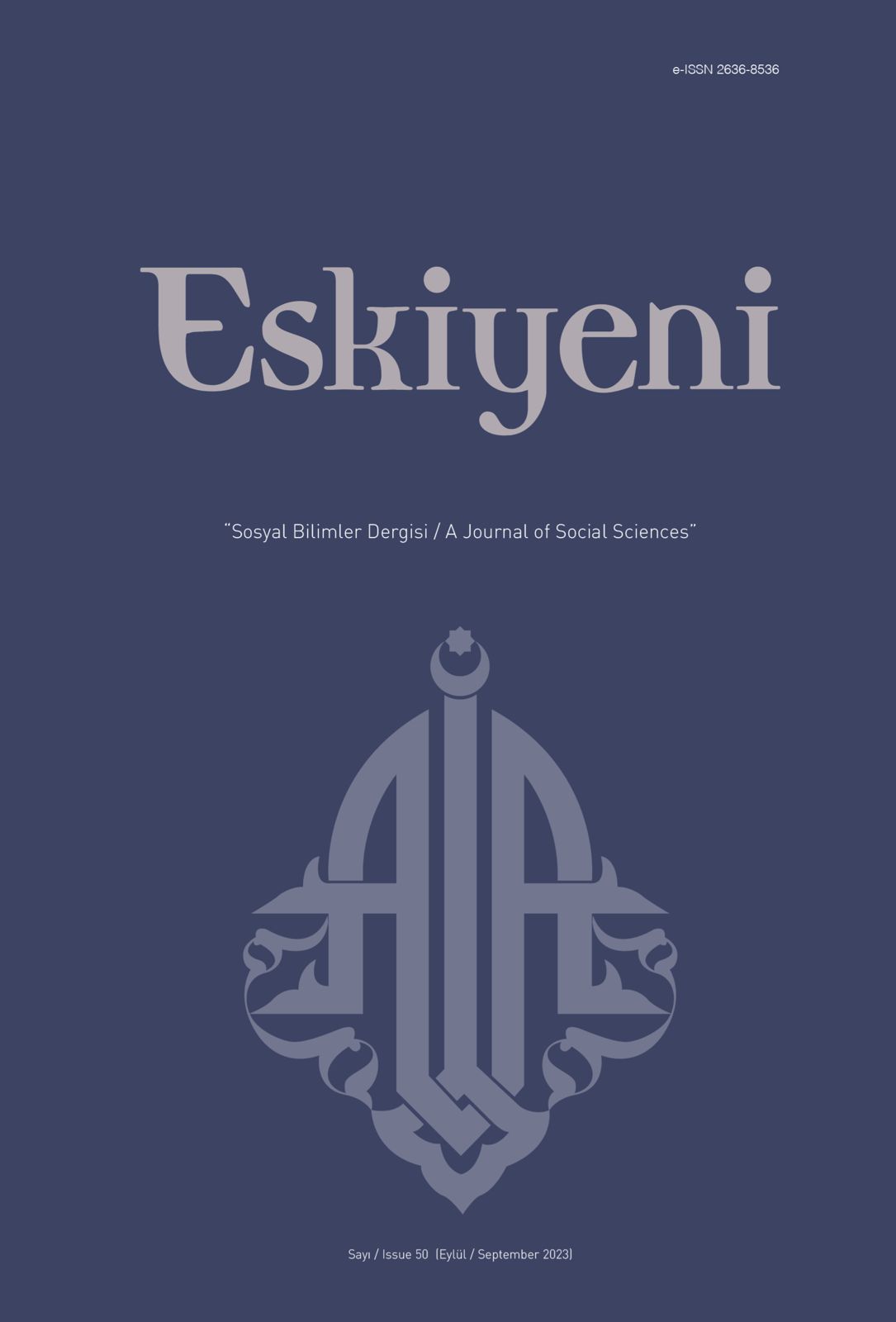
Natural disasters are one of the periods when the need for religious services emerges clearly. This need is clearly seen from the interpretation of disasters to the solution of post-disaster mental and spiritual problems. The Presidency of Religious Affairs, in coordination with other state institutions, provided various services in order to meet the needs of the individiual and the society after natural disasters. Spiritual counseling and guidance, which is one of the most important of these, is a service provided within the scope of meeting the psychological and spiritual needs of people after a disaster, keeping their morale high and making sense of the disaster. The study is based on the following question: What are the spiritual counseling services provided by the religious officials in the acute period after the disaster, and how do these services work? The aim of this research is to determine the current status of the Spiritual Counseling and Guidance (SCG) service, which is an essential component of the religious services offered in the provinces most affected by the earthquake, by the Presidency of Religious Affairs after Kahramanmaraş Earthquakes on February 6, 2023, through the observations made on the service providers and service recipients, and to develop recommendations. This study was carried out by focusing on the cultural analysis (ethnography) design, which is one of the qualitative research approaches. Participated and unattended observation was used as a data collection technique in the research, and a semi-structured observation form was used as a data collection tool. At the end of this field research, it was observed that under the current conditions, SCG services are not based on a systematic counselor-counselee relationship, but rather on a consolation process in which visits, asking about well-being, chatting, reciting the Qur’an, and praying come to the fore. As it was the the first weeks after the earthquake, it was found that it was common to provide spiritual counseling and guidance services (SCG) through funeral services, cemetery visits, conversations in mosques. It has been determined that the public`s approach to the services provided is positive, but the access to young people remains limited. One-to-one communication and regular visits by the Directorate of Religious Affairs officials with the disaster victims facilitated services other than spiritual counseling and guidance. Therefore, reducing the services provided by Directorate of Religious Affairs religious education only means not evaluating the service provided in the region sufficiently.
More...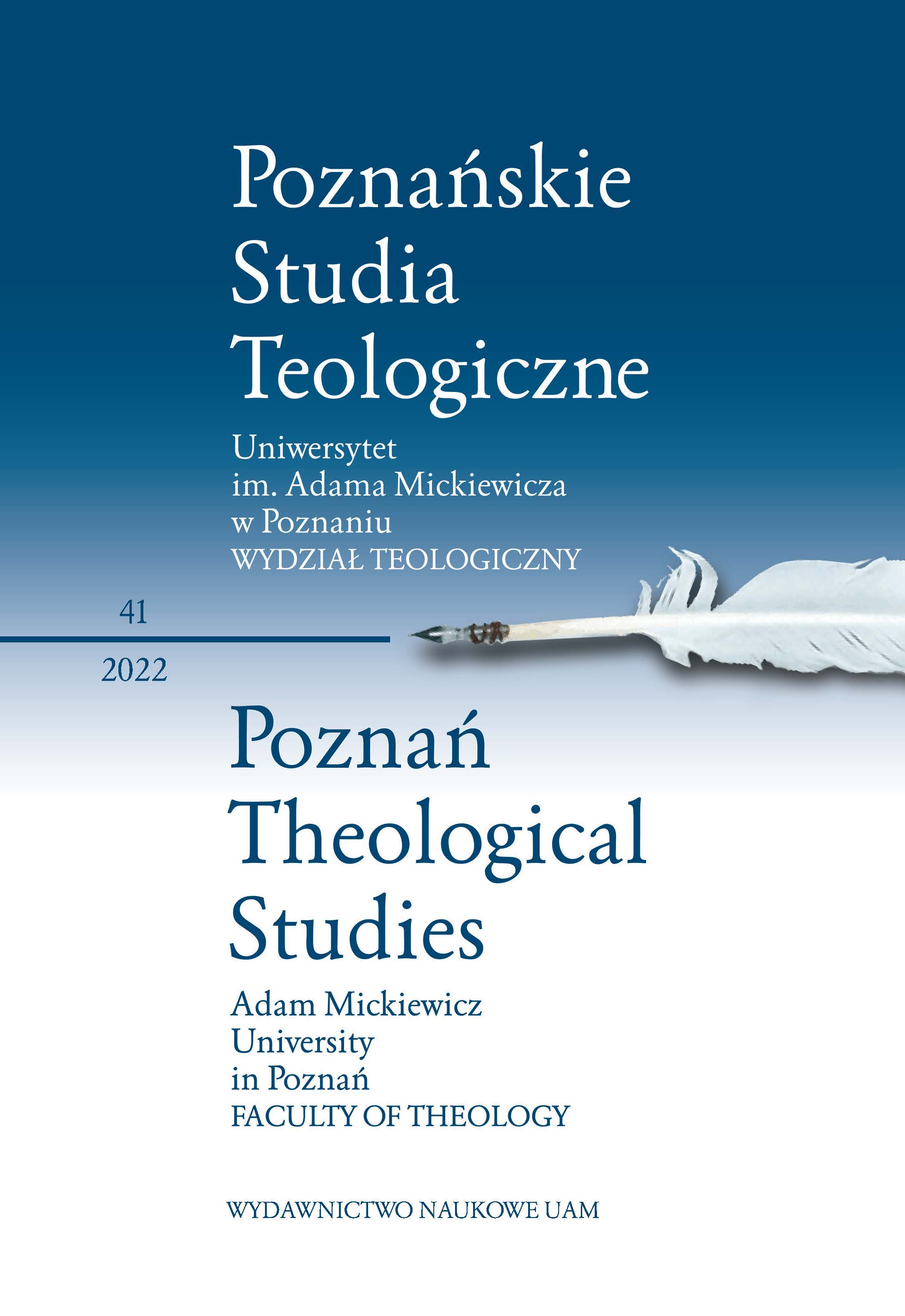
The meeting of Catholic protology with the discoveries of specific sciences regarding the origins of the world and man was the cause of many controversies in the past. It seems, however, that such tensions can be avoided by building an integral protological narrative, taking into account both the perspective of faith and the achievements of empirical sciences. Currently, it seems necessary to try to build a narrative in the field of anthropogenesis and the earliest history of man that would take into account both the most important aspects of theological anthropology and the current state of research in paleoanthropology and paleoarchaeology. This may result in interesting conclusions regarding the concept of the human person and the criteria that distinguish humans from the animal world.
More...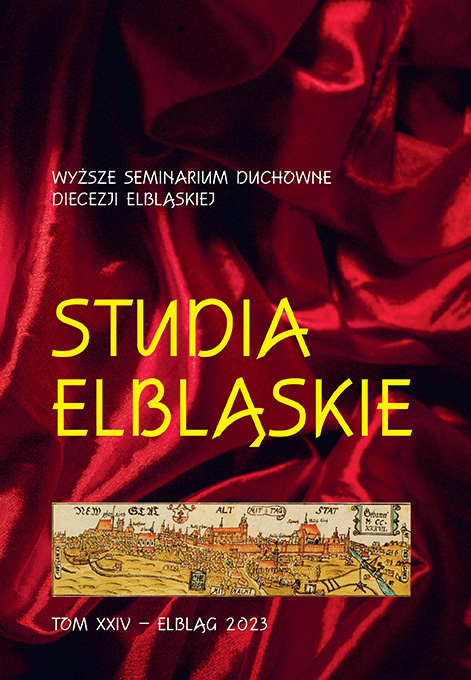
In the article, the author undertakes an analysis of Alain Besançon’s writings on the Catholic Church and Christianity, focusing on a few selected threads, and shows the apology ad intra and ad extra made by the French researcher. In the first part, he deals with the concept of orthodoxy and reasonable faith. The second part is devoted to the relationship of the Catholic Church to communism and Islam. The basic method of work is analysis, to which selected essays by the French sovietologist are subjected. At the end of the article, the author articulates the most important conclusions. The apology practiced by Alain Besançon is a critical reflection, which means that the French scholar does not so much accept the essential claims presented by the Catholic Church as first asks about their sense, follows the argumentation and provides his own justification. Alain Besançon’s apology is characterized by contextuality, which means that the French researcher, as a world-renowned sovietologist, first of all stands out with his incredible knowledge of totalitarian systems, but also recognizes the context in which Christianity used to be and still exists today. Alain Besançon’s apology takes the form ad intra and ad extra. The French intellectual, asking about the form of the Christian faith or orthodoxy, follows the path inward and makes an apology ad intra, as it were, towards himself. However, when he looks at the world and observes various relations between Christianity and political systems or other religions, he makes an ad extra apology, defends the faith against external threats, formulating an adequate apology
More...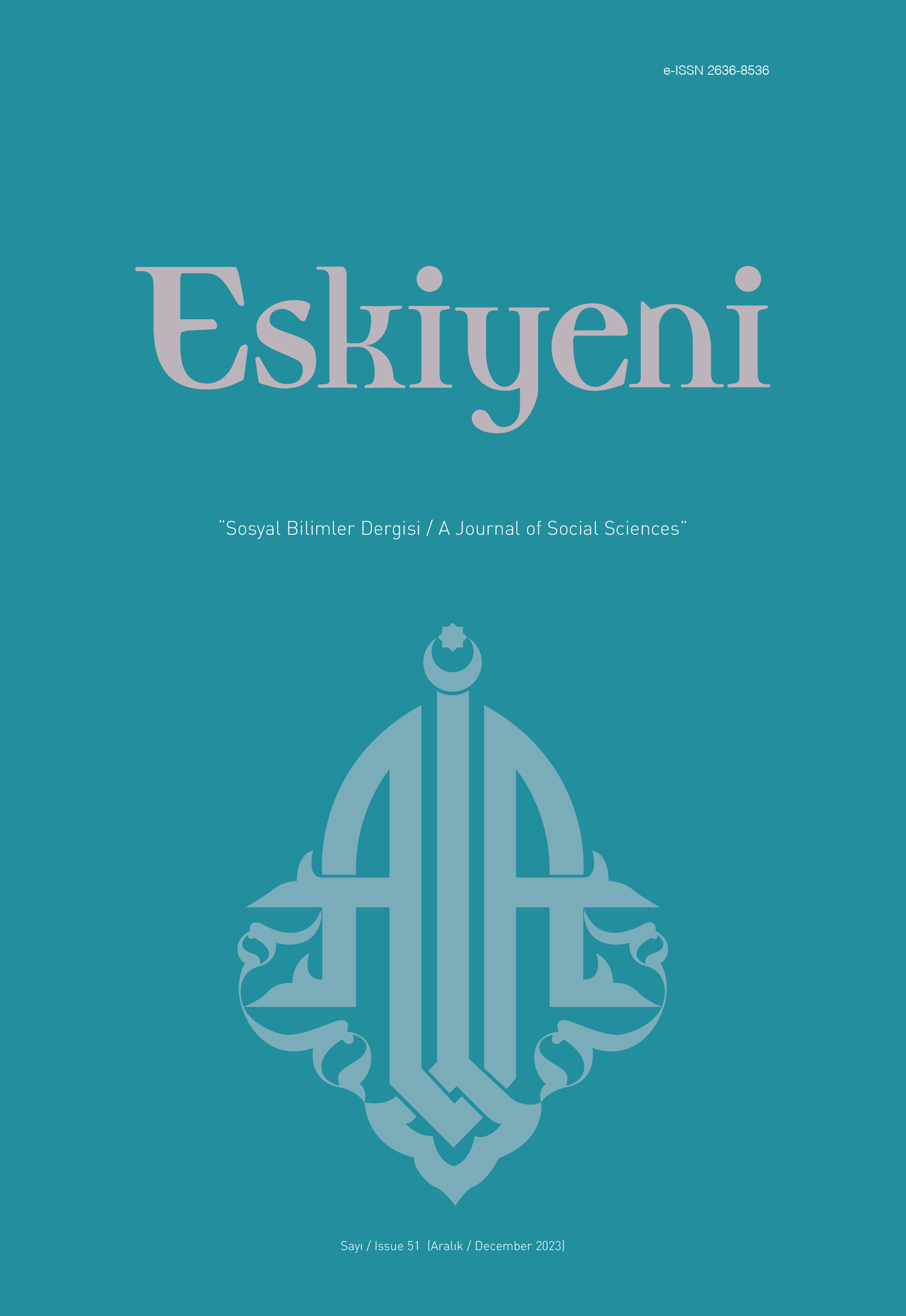
Concepts are the products of the human mind and imagination that have emerged in the context of history-society. For this reason, their meaning contents also change throughout history. In this context, science and religion are two important concepts that the human mind has produced in history. However, both have found a wide application area in practical life and have influenced each other interactively throughout history. Until the emergence of scientific thought, religions have gained the power to organize human and social life by undertaking the task of meeting the need for knowledge of human beings. With the emergence of scientific thinking ability, the way religions describe and explain nature and its contents has also been discussed. However, the attempt to think scientifically, which took off in Ancient Greece in European history, could not show a significant presence during the Medieval Ages, when Christianity determined scientific thought. Some important scientific, social and economic developments that took place in Europe in the 15th and 16th centuries led to the questioning of the authority of the Church, and brought the importance and value of scientific thought back to the agenda of the Western people. As the power of science to explain nature increased, the power of institutional religion to determine thought began to decline. However, when we look closely at this period, it can be seen that the leading figures of the scientific revolution - although they are free-thinking people - also have sincere religious and metaphysical beliefs, and the struggle is mostly tied around the “problem of authority”. In the following centuries, as modern science began to make itself felt more and more in public life with its spectacular achievements, institutional religion would have to largely leave the public sphere. From now on, science will claim to establish it on earth in return for the claim of heaven provided by religions in the next world. However, with the understanding that science cannot answer the existential problems of human beings and the need for certainty with the 20th century, the “sacred” has succeeded in reproducing itself in a new form. Thus, the history of science has clearly shown us once again that it is not possible to completely remove metaphysical beliefs from the human mind and scientific thought.
More...
This article explores the revolutionary impact of Christianity on social and medical assistance,emphasizing the profound influence of Christian values in shaping society. The Church played a crucial role in establishing institutions to care for the vulnerable, laying the foundation for modern state social and medical assistance systems. Christianity's emphasis on love, compassion, and the inherent worth of every human life as image of God remains relevant and transformative in the modern world. The Church's continued role in society is essential, as these values cannot be formalized or reduced to secular concepts,but stem from a deep conviction in God's initial love for humanity. The article discusses the revolutionary impact of Christianity on social and medical assistance, asserting that these services were born within the Church out of love. Christianity introduced the value of love as a new commandment and emphasized the absolute value of the human person, leading to the establishment of institutions like orphanages, homes for the elderly, and hospitals. The "Epistle to Diognetus," a 2nd-century Christian writing, is highlighted as an early testimony of Christian values that set believers apart from the prevailing Roman Empire culture. The article also explores how Christianity shaped the concept of humanity and the dignity of the human person. The belief in the Incarnation and the Imago Dei elevated human worth, contributing to the development of human rights, compassion, and care for the vulnerable. Early Christian communities established hospitals, and monastic communities played a significant role in providing medical care.Moreover, the Byzantine Empire's contributions to healthcare and hospitals are examined, showcasing how Christianity integrated medical science with spiritual healing and emphasized compassionate care for the sick and vulnerable. In conclusion, the article emphasizes that the values of love and care for the vulnerable remain relevant and continue to shape modern society, with the Church's role in promoting these values remaining essential.
More...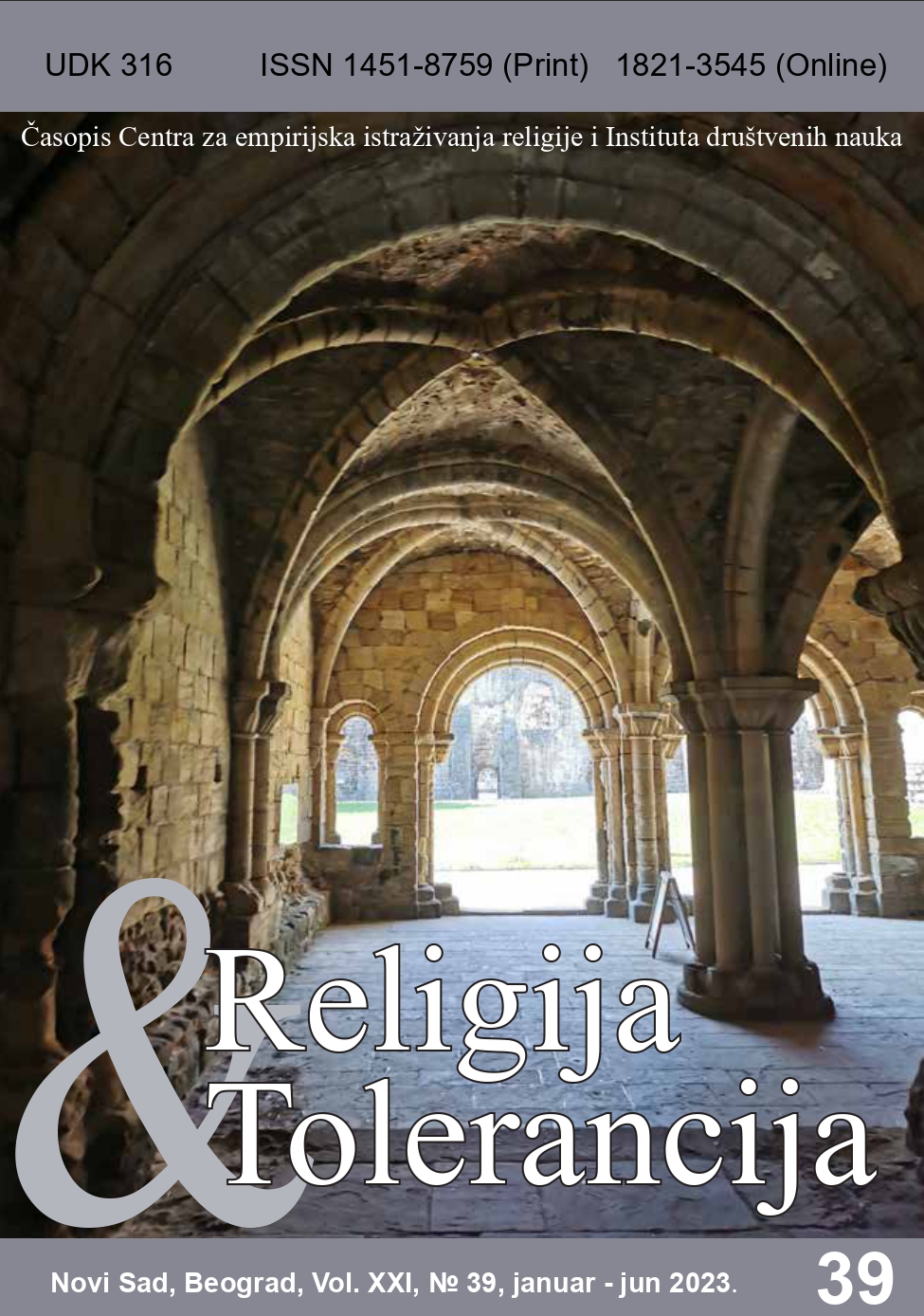
During the time of COVID-19 pandemic, vaccination attitudes have become one of the most important public health issues, while their determinants have also become a widely researched topic. The main goal of the paper is to explore the connection between religiosity, Internet use and vaccination attitudes, i.e. to determine possible interaction effect between Internet use and religiosity. In order to achieve the research goal, the authors compared the results from two surveys – one conducted on an online non-random sample of the Croatian general population (N = 822) in 2019 (before the pandemic) and the other conducted on a nationally representative online quota sample (N = 1.500) in 2022 (during the pandemic). The data were analyzed with hierarchical linear regressions, and the results showed that religiosity was a significant predictor of vaccine hesitancy both before and during the pandemic. Therefore, there seems to be a tension between science, as a secular ideology, and religion. The results also showed that before the pandemic Internet use was negatively correlated with vaccine hesitancy, probably indicating the positive correlation between the social integration and Internet use. The results from 2022 showed that there was an interactive impact of religiosity and Internet use, i.e. that the relationship between time spent on the Internet showed different signs among religious and non-religious persons. Namely, among the religious persons, those who spent more time on the Internet (one standard deviation above the average) had about one point higher vaccination conspiracy beliefs in comparison to the persons who spent less time on the Internet (one standard deviation below the average). Among the less religious persons the pattern was different – persons who spent more time on the Internet had one point lower result on the vaccination conspiracy scale. The results are framed within the general relations between religion and science/technology as partially competing worldviews, as well having in mind the theories of media effects and the social uses of media technologies.
More...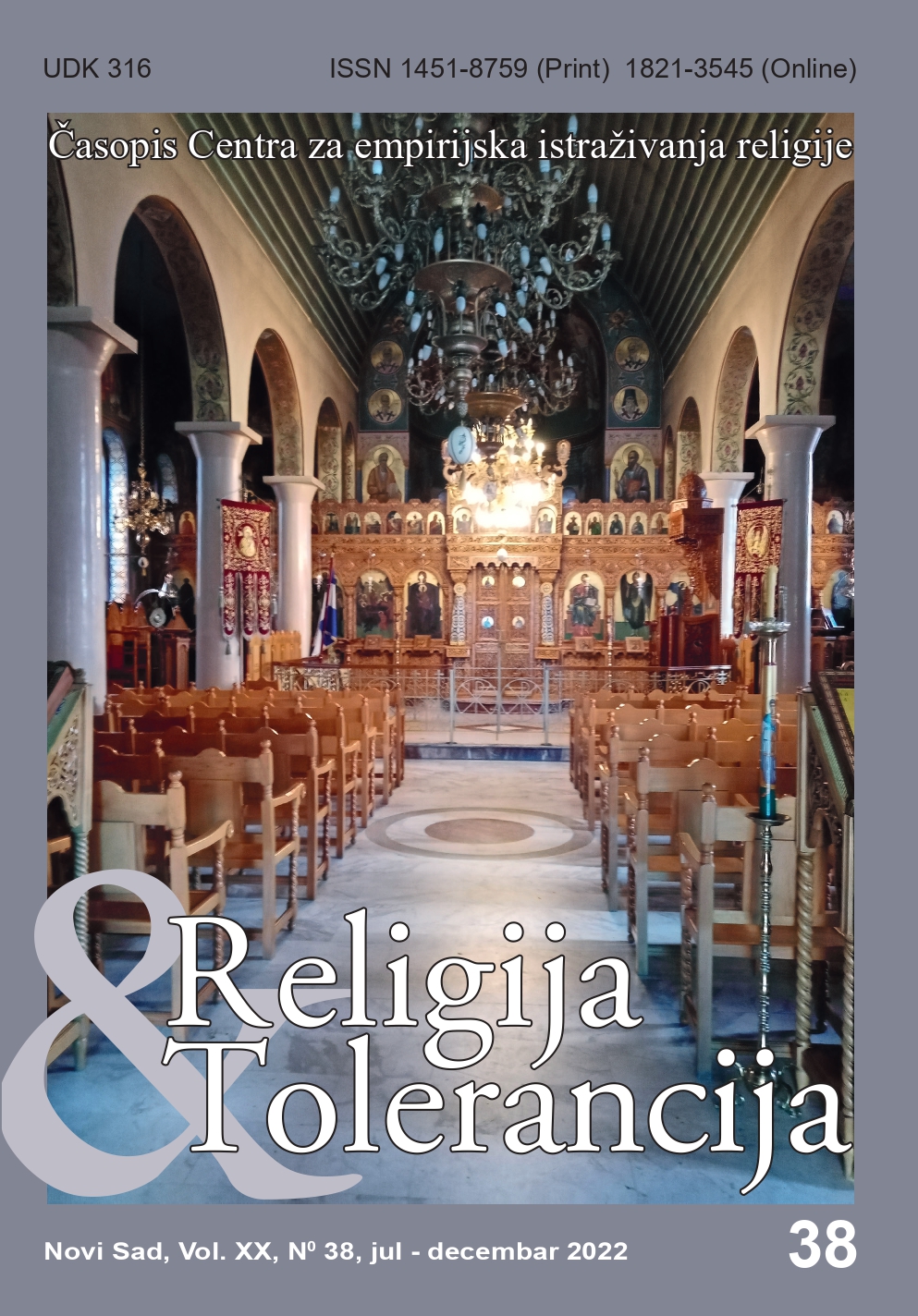
The goal of this essay is to demonstrate the relationship between religiosity and personal mental health. Religion, that is manifested in person‘s religiosity is a phenomenon which we can recognize since the beginning of human history. Society, in its various facets, is strongly impacted by religion. Many prominent individuals in history have shared their observations of its impact on a man‘s psyche, that is his mental condition. This essay in part conveys the reflections of some of these individuals. For the purpose of better understanding that religiosity has on person‘s mental health it is important to define what mental health is. The experience and observations of professionals who are trained in the field of mental health demonstrate the existence of good and beneficial effects of religiosity on people‘s psyche, as well as the negative ones. However, this essay is not an exhaustive and complete explanation of them. And in the end, the term ecclesiogenic neuroses is covered to illustrate dynamic relationship between religiosity and its effects on mental conditions
More...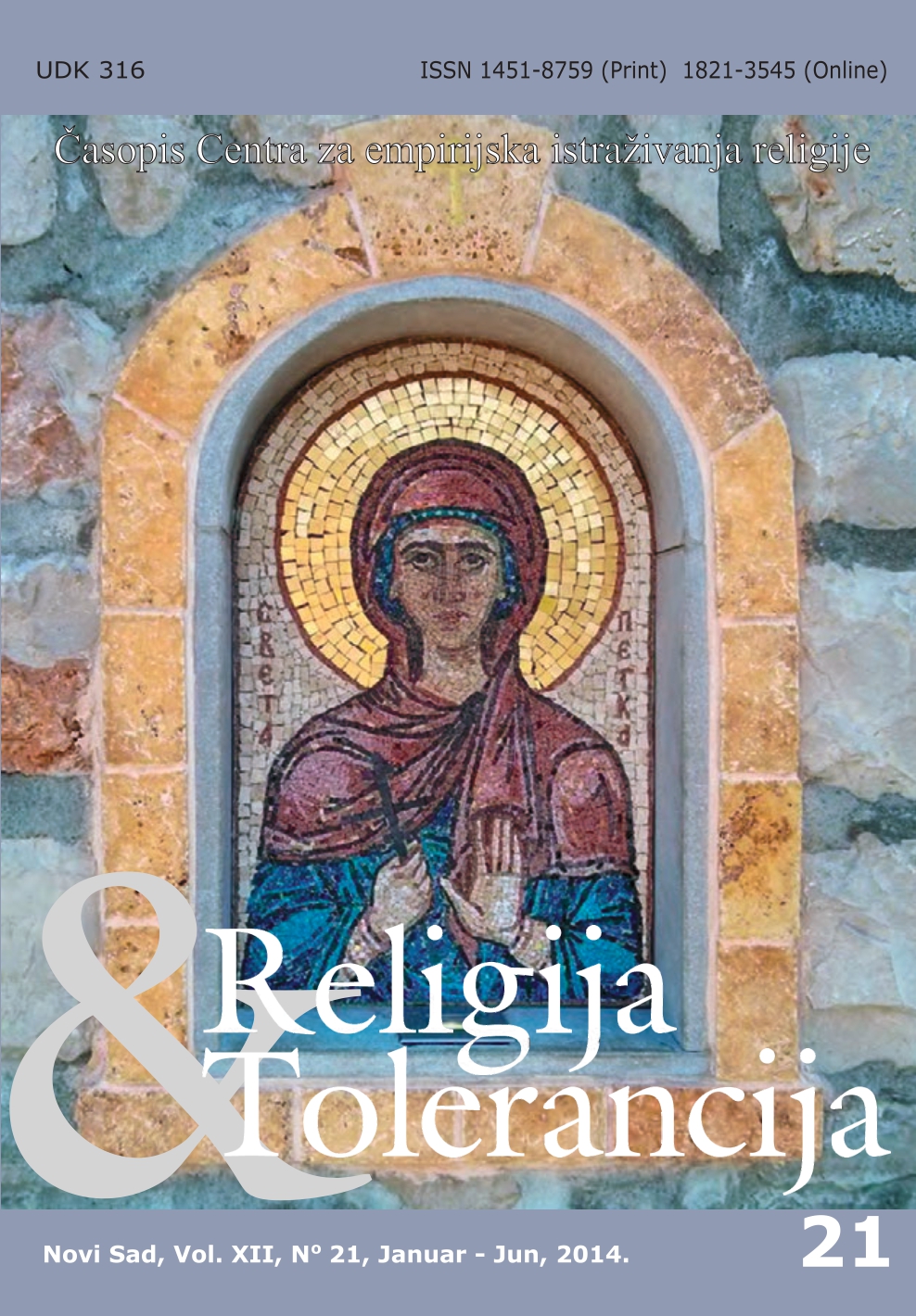
Nowadays a lot of surveys show that our Earth is in serious crisis. The ground, air and waters are in very polluted and bad condition almost everywhere. The cause of this is the economic and financial competition, which started in the age of the industrial revolution. Above all the human thinking has gone through a crisis. So according to many Christian churches and theologians, solution can occur just in spiritual way. The World Council of Churches worked out an ecumenical spiritual programme to remedy the situation, which got a happy remark: AGAPE (Alternative Globalization Addressing Peoples and Earth). My article would like to demonstrate the present condition of the Earth and this spiritual action plan in complex way.
More...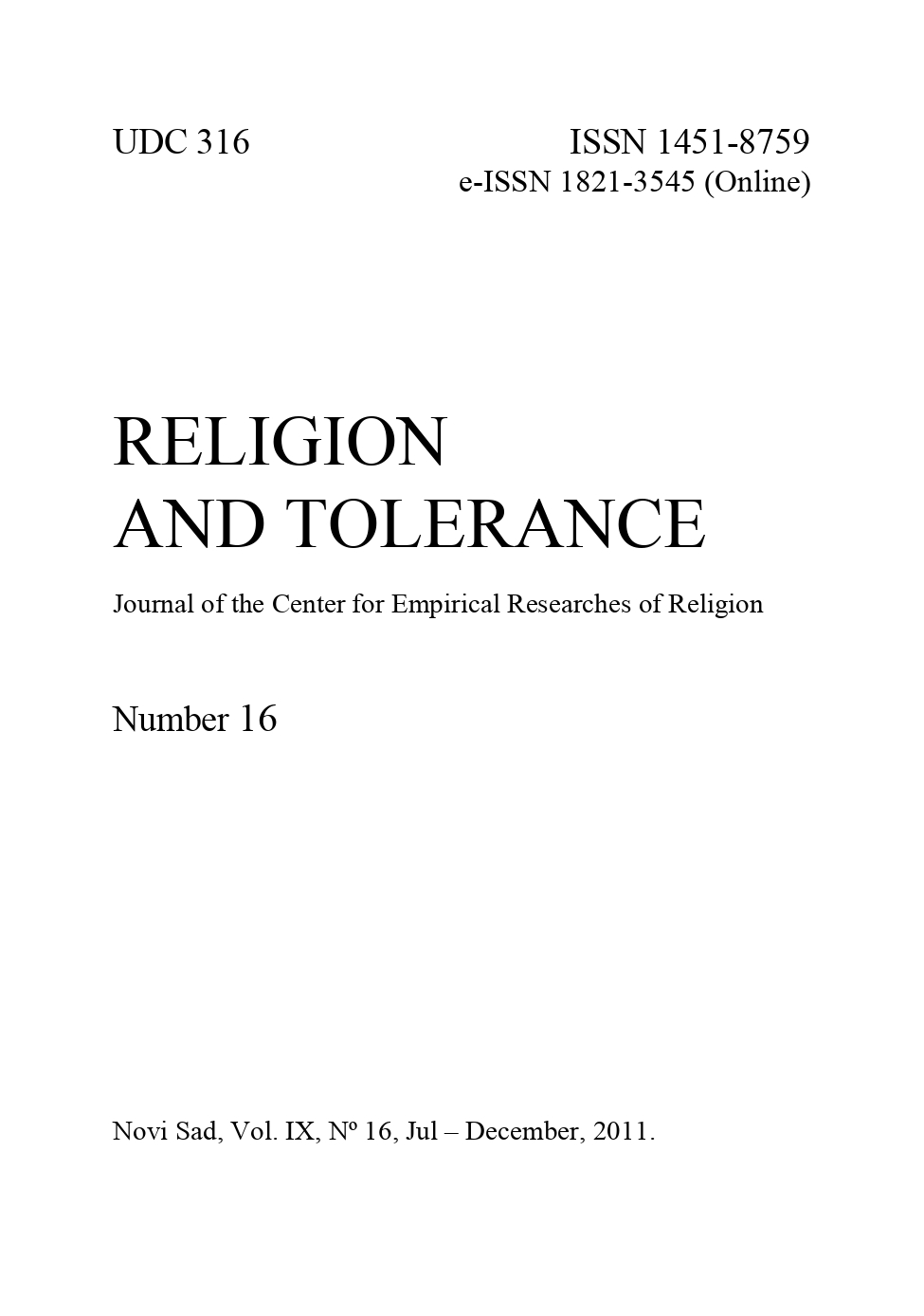
We briefly expound the deepest picture of the world since the beginning, coming to us from astronomical observations and experiments with elementary particles, leaving place to find the origin in a spiritual principle. If Stephen Hawking and Leonard Mlodinow were able to say that "the universe can create itself from nothing" and Roger Penrose that it was initially without mass, it would be like the Old Testament's creation of the world ex nihilo. When they supported that "the cosmos hasn't a history, but every possible history", they allowed the possibility of a world "by the way of the word" (logos), summing up in itself as rational, good, exact and beautiful. That is exactly our world. In the first case, they say in the beginning cosmos was without mass and the particle called "God particle" is not found yet. According to another opinion cosmos at its beginning was a fireball (as energy), an infinitesimal of infinite density, which submitted itself once to a bang, sharing and then expansion (Big Bang theory). Our world is "fine-tuned", one of the possible worlds, in which exists order, meaning and ultimate goal, not just being a chaotic conglomerate of material units.
More...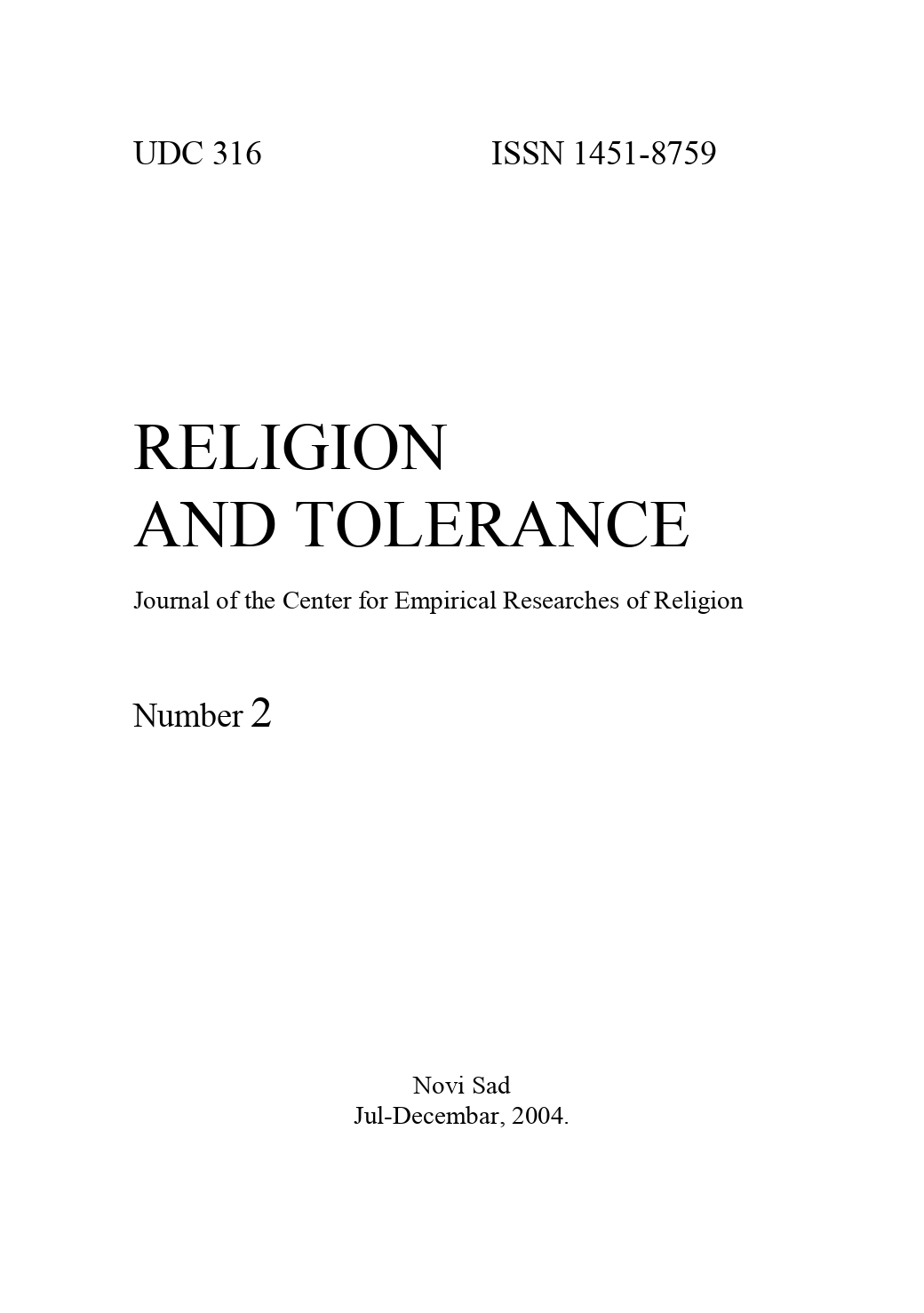
A possibility and necessity of the dialogue between science and religion is considered, enabled by the existence of rational dimensions in the both systems of ideas, beliefs and practices. Science and religion are two distinct but not two hostile paths: two equally relevant efforts of human spirit! Science and religion would have less intellectual disputes and social conflicts if only both of them would explicate their principles, and then in even dialogue, espy and evaluate possibilities and frontiers of their principles and sorts of enabled questions and answers. Religion might be interesting for science as it opens new and unknown fields of human experience, and continually points to frontiers of science and its methods. In this context it might be said that frontier between science and religion is historically changeable, which does not mean that it can escape. Religion is not a sort of less developed science, but an independent way of thinking, beliefs and actions, offering to believer a solution of some problems otherwise unbearable, even by assistance of science and its methods.
More...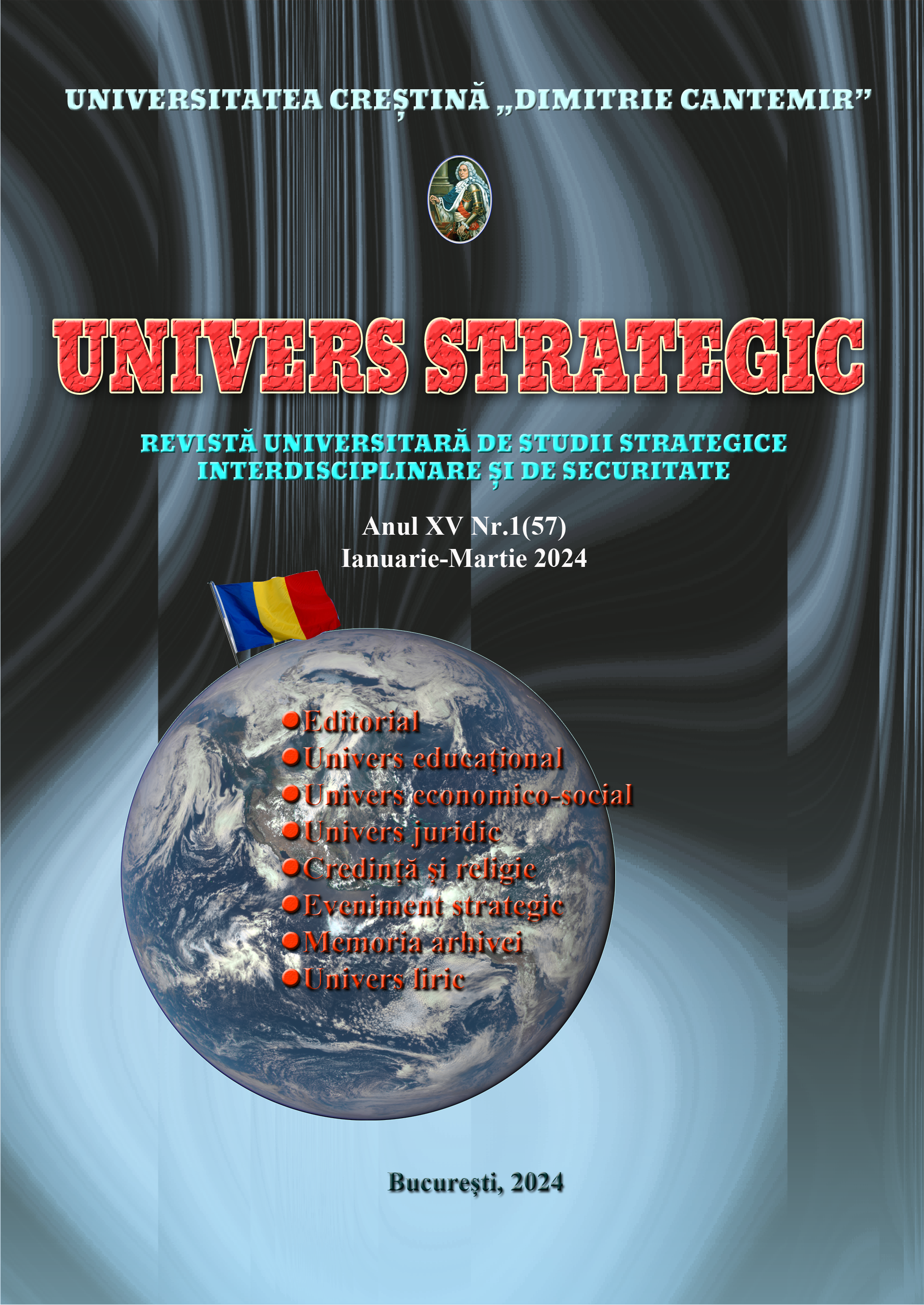
Scientists claim that the Universe began after the Big Bang. Cosmology is the „science of the cosmos”, it is the study of the history of the Universe, especially its origins and destiny.The history of the Universe is studied in astronomy, philosophy and religion.
More...
The genius of good can be defined as the person who has a cerebral and spiritual endowment characterized by a creative activity whose results have a great beneficial significance for a country and even for the whole of humanity.In turn, the Evil Genius can be defined as the person who also has a cerebral and spiritual endowment characterized by a creative activity whose results have produced great tragedies for a country and even for all of humanity.
More...
The Internet is overloaded with information of the fake news type, of false news, because of which people get confused, they don’t know what is real news and what is fake news.
More...
The „positive greed of enrichment” is a topic that has not been addressed before, and even more so with sound, rational arguments. It is generally believed, wrongly, that greed cannot be positive, let alone be the basis of collective wealth. By reading this article carefully, one will understand how beneficial it is, both for each person and for each country, the greed for enrichment, through the assiduous and honest work of as many people as possible. The more greedy people in a country, the more prosperous that country will be. The greed of enrichment is good in that the one who dedicates his life to enrichment, through hard and honest work, does good to himself, but also does good to others. The gain of the greedy to get rich also generates gains for others, especially the poor. The standard of living of the poor depends on the level of development of the rich, on their greed for work. People greedy for enrichment become rich not by robbing others, but by increasing the total wealth, which will ensure a better and better life for the poor as well (poor from idleness, poor from benevolence, poor from practicing vices, etc.), greed becoming altruism. The selfish drive of people to increase their earnings, that is, the greed to get rich, is the basis of collective wealth. Adam Smith said that: (1) The problem of poverty is solved only (1.1) by work and wealth, and (1.2) by the involvement of all the poor in work. and (2) greedy for wealth are the most useful and well-intentioned people in society, because they set in motion the wheels of the entire social mechanism by which the development of the country is ensured for the benefit of all. Condemning, in the name of dogmas, people dedicated to work, people greedy for work and their riches (accumulated with great effort, after a lifetime of work), is a problem that needs to be reconsidered from the ground up.
More...
Starting with the 21st century, in developed countries there is no field of social and economic life that is not influenced by the applications of artificial intelligence.Some of the biggest and most beneficial radical, epochal changes through the application of artificial intelligence are taking place in medicine.As a field that plays a very important role, sometimes decisive, for the health and life of more and more people, I believe that the applications of artificial intelligence that take place in medicine must be known as quickly as possible and by more and more people.
More...
The appearance of man on Earth is probably one of the greatest mysteries. The question „How long has MAN existed on Earth” continues to be one of the greatest mysteries for any rational man. Between the answers to the question „How long has MAN existed on Earth” are very large differences (1) in the accounts of the Bible and (3) according to scientific findings.
More...
Families still live according to the teachings of the Bible, or which still largely correspond to them. Since the 21st century, the changes are radical (and dramatic) regarding the human being and, by way of consequence, also the family. Through Artificial Intelligence, the human being will be manufactured as an artificial product and/or with a „posthuman future”, with „homo digitalis”.
More...
There are great differences between the „Age of the universe, of the stars, of the sun, of the earth, and of man,” (1) in the accounts of the Bible, and (3) that according to scientific discoveries.For a long time people believed (and some still believe today!?) that the Earth sits still at the center of the Universe and that the Sun, planets and stars revolve around it.This conception is known as the geocentric theory and is based on the records in the Bible, the Old Testament, the Book of Genesis, reproduced in Appendix no. 1, which presents, comparatively, the most important scientific arguments on the basis of which the heliocentric theory is supported, which claims that the planet Earth is the one that revolves around the Sun.The problem under discussion is presented without comments from the undersigned, following that everyone can understand what he can according to his mind and according to his faith, I am convinced that nothing can stop people with creative thinking from their way and that it is very difficult to- you make the wrong minded to change.
More...